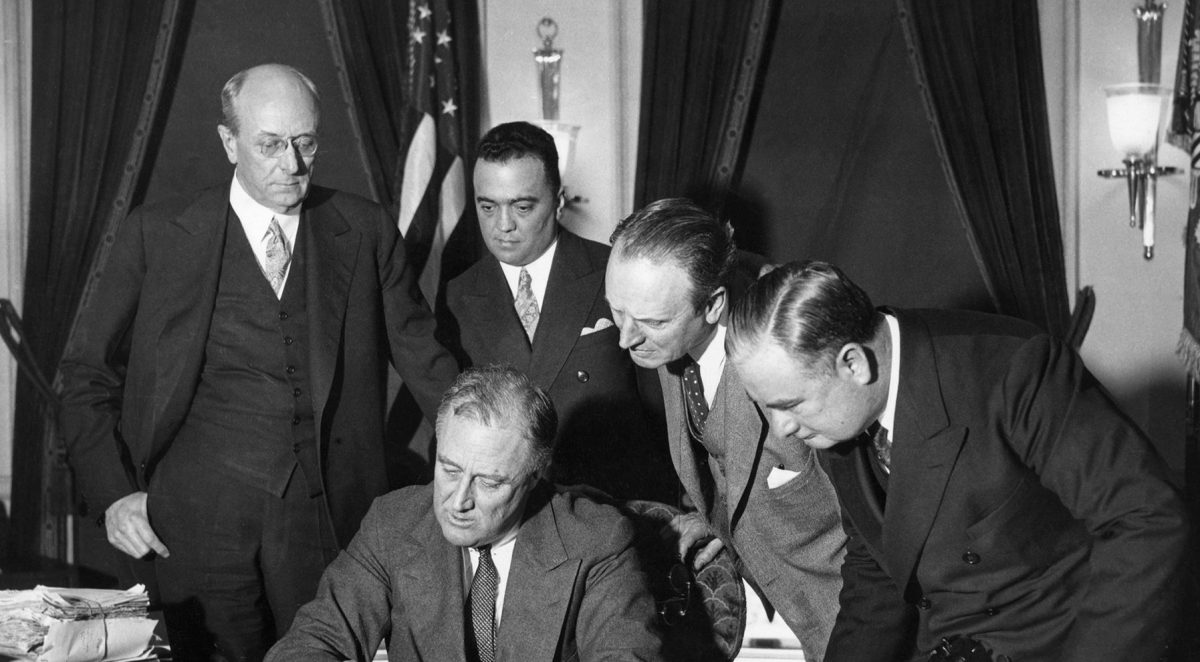Before taking the job of acting director of what was then known as the Bureau of Investigations, J. Edgar Hoover reportedly told U.S. Attorney General Harlan Fiske Stone that:
“The Bureau must be divorced from politics and not be a catch-all for political hacks. Appointments must be based on merit. Second, promotions will be made on proven ability and the Bureau will be responsible only to the Attorney General.”
That’s a pretty interesting statement, given how the current connections between the FBI and the White House—exemplified by President Trump firing FBI Director James Comey, amidst an active investigation into his administration’s ties to Russia.
But the current spate of headlines aside, the agency has a long history of being intertwined with politics. As Smithsonian magazine notes, it was World War I that gave the FBI its first real taste of power, as it was placed in charge of enforcing the Espionage and Sedition Acts. “Targeted arrests from these acts showed early examples of potential political abuses,” reports Smithsonian.
The FBI itself notes on its history page that by the 1920s, “it had a growing reputation for politicized investigations.”
President Calvin Coolidge then tried to defang the agency—but in the process, helped launch the version of the FBI we know today, as that was his AG that appointed Hoover. And of course, Hoover went on to make the bureau his own “personal and political machine,” per Collier’s magazine’s Washington bureau chief Ray Tucker noted in 1933.
For more on Hoover’s FBI, watch the clip from CSPAN below.
This article appeared in an InsideHook newsletter. Sign up for free to get more on travel, wellness, style, drinking, and culture.
























